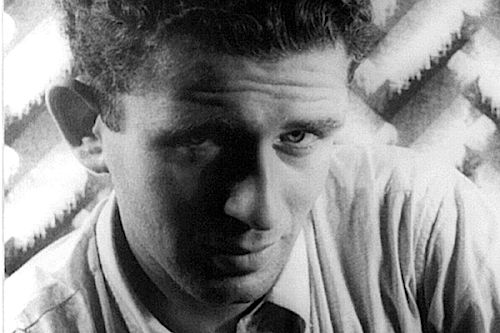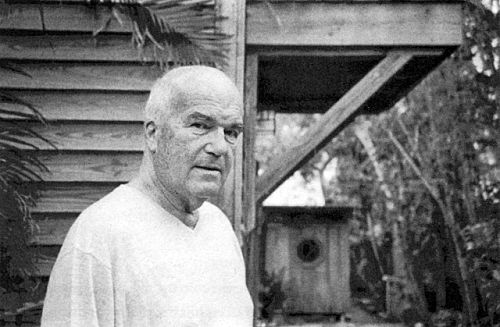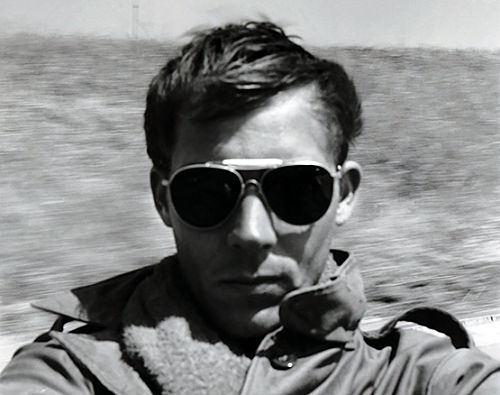
Ismail Kadare
“I had three choices: to conform to my own beliefs, which meant death; complete silence, which meant another kind of death; to pay a tribute, a bribe. I chose the third solution by writing The Long Winter.”

“I had three choices: to conform to my own beliefs, which meant death; complete silence, which meant another kind of death; to pay a tribute, a bribe. I chose the third solution by writing The Long Winter.”

“Writing has always been like that for me. Slowly blundering toward consciousness.”

“I've never been drawn to the feminist movement. I've never been put down by a man, unless I deserved it, and have never felt inferior.”

“When I finish a sentence, after much labor, it’s finished. A certain point comes at which you can’t do any more work on it because you know it will kill the sentence.”

“Writers of either gender ought to be able to do the opposite sex—that's one basic test of competence, after all.”

“I’m not adopted. But that longing and that sense of absence . . . are perhaps other ways of expressing the actualities of my family. Different facts, same emotions.”

“I’m not ashamed to admit that occasionally I’ve found myself aroused by my own depictions of sex.”

“One man wrote me, saying, ‘You know who you are? You're nothing but a Captain Bly pissing up a drainpipe!’”

On life imitating art: “The very genetic determinism I posited in World's End as a way of shaking off my inherited demons is being proven in fact as we map out the human genome.”

“I don’t see much point in doing things for a pure joke. Every now and then you need a joke, but not so much as the people who spend all their lives constructing joke palaces think you do.”

On sitting down to write: “It's like standing on the edge of a cliff. This is especially true of the first draft. Every day you're making up the earth you're going to stand on.”

“At least half of your mind is always thinking, I’ll be leaving; this won’t last. It’s a good Buddhist attitude. If I were a Buddhist, this would be a great help. As it is, I’m just sad.”

“Until recently, I thought ‘occasional poetry’ meant that you wrote only occasionally.”

“My father had osteomyelitis—his left arm was withered between his elbow and his shoulder. . . . But the amputation of a Stone Age man called Leaf, a stoneworker, does not relate to my father at all . . . ”

“The point of view I take is the point of view of Diogenes, which is that when a man owns a lion, a lion owns a man. The thing about technology is that it owns us.”

“Writing nonfiction is more like sculpture, a matter of shaping the research into the finished thing.”

“I suspect that there is no serious scholar who doesn’t like to watch television. I’m just the only one who confesses. ”

“I’m a perfectionist. I go to great lengths to get it all right. It’s the biggest challenge I face when I’m writing. If you’re confused about something in one of my books, you’ve just got to realize, Ellroy’s a master, and if I’m not following it, it’s my problem.”

“I recall lying on a bed, looking at a manuscript on the floor as I reached to turn pages, and thinking to myself, I must mean everything I say, every word.”

“If I were to give serious practical advice to a young writer about how to succeed I would say: ‘Write the same book, or the same play, over and over again, just very slightly different . . .’”

“When I started out I wouldn't write a poem until I knew the first line and the last line . . . I was a tyrant and I was good at it.”

On meeting J. D. Salinger: “Then he said . . . ‘I'd like you to publish my novel.’ I said, ‘What novel?’ He said, ‘Oh, it isn't finished. It's about a kid in New York during the Christmas holidays.’”

“[There] is all this narrowing to a now in which there’s only room for effect, not enough room for cause—and so no duration in which to experience personal accountability.”

“I need, physically need, several hours every day to be alone and write.”

Barry Hannah on self-hating Southerners, .45 caliber teaching tools, and overcoming alcoholism: "I was often taught that everything is worth it for art. Everything. It was a cult."

“Housman's reference to the hairs rising at the back of one's neck as one reads a poem remains a test of quality. Such response is individual and cannot merely be generalized, dismantled, controlled.”

“I assemble stories—me and a hundred million other people—at the sentence level. Not by coming up with a sweeping story line.”

“Can you imagine the sort of letters Henry James would have gotten had he written The Turn of the Screw in the first person?”

“One encounters in any ordinary day far more real difficulty than one confronts in the most ‘intellectual’ piece of work. Why is it believed that poetry, prose, painting, music should be less than we are?”

On having been a precocious child: “Of course, what precocity gave, socialization took away, and I hope the rather nasty designation ‘precocious child’ faded away before (at least!) adolescence.”

“I’ve never been intimidated by the idea of having to make up a story. It’s always been a relatively easy thing that people did in a relaxed environment.”

“English has more flexibility. It’s a very plastic, very shapeable, very expressive language. In that sense it feels quite natural.”

“People who didn’t live pre-Internet can’t grasp how devoid of ideas life in my hometown was. I stopped in the middle of the SAT to memorize a poem, because I thought, This is a great work of art and I’ll never see it again.”

“They did type me as a horror writer, but I have been able to do all sorts of things within that framework.”

On feminism: “It's a point of view; it's a stance; it's an attitude towards life that affects, and afflicts, everything I do.”

“I’ve always felt that there’s a very thin membrane between madness, alcoholism, and/or destitution and being an OK American guy in a comfortable heated apartment with meatballs and a decent Sauvignon Blanc in the fridge.”

“I’m gregarious with writers and never with manuscripts . . . I [like to] create the illusion of seamless perfection, so I alone know the flawed homely process along the way.”

“Raymond Chandler [has said]: ‘No art without the resistance of the medium.’ But the resistance mustn't be gratuitously imported for tactical purposes.”

“As you grow older, there’s no reason why you can’t be wiser as a novelist than you ever were before. You should know more about human nature every year of your life.”

“To think of posterity nowadays is ludicrous because things do not last. Books seem to last more than films or records but even they do not last very long.”

“I discovered you could write prose the way you do poetry. You don’t approach it from the idea that what you have to say is inside you. It’s a materialist approach, for want of a better word. You make something. You give up expressing and start inventing.”

“Lowell, who was the most exhaustingly literary person I’d ever met, I’ve always considered the master of rhetoric. He told me once that he worked over a line ‘until it sounds like Lowell.’”

“Moments of crisis [in my writing] were to become a way of exploring and testing character. How we might withstand, or fail to withstand, an extreme experience . . . ”

“It’s important for me to have someone read the work who won’t let me get away with things. A bullshit detector. Essential to the process.”

“A novel is a daily labor over a period of years. But a story can be like a mad, lovely visitor, with whom you spend a rather exciting weekend.”

“I’m pretty interested in general knowledge, and science and arcane knowledge. Much more interested in that than I am in Literature with a capital L. Or at least as interested.”

“Even now, my ideal for writing fiction is to put Dostoyevsky and Chandler together in one book.”

“It’s a deep dirty secret, in Australia, that I’m the wrong class to be a poet.”

“I’ve cultivated the first-person style as opposed to the third person. It’s a problem. A really good novelist is able to write in the third person, but I have never been able to write well in the third person.”

“If you believe in its literary and moral seriousness ... it becomes a literary statement.”

On how music is an intimation of death: “You start the song. . . and you know, even as you round the corner of the first verse, that it’s only going to last for four and a half minutes. All you can do is keep moving to it.”

“The reason I put out-of-the-ordinary names on characters is because the John Smiths of the literary world make me sick.”

“I write novels quickly, which is not my reputation.”

“A story doesn’t have to be simple, it doesn’t have to be one-dimensional but, especially if it’s multidimensional, you need to find the clearest, most engaging way of telling it.”

“What’s recombinant rhyme? It’s like how they add a snip of the jellyfish’s glow-in-the-dark gene to bunnies and make them glow green; by snipping up pieces of sound and redistributing them throughout a poem I found I could get the poem to go a little bit luminescent.”

“When On the Waterfront succeeded ... I began to feel, Jesus, you can do the same thing in film that you can do in a book.”

“I was left with myself and had to do the one thing I could to survive. I knew it would be difficult to write, very difficult, but I set about doing it.”

“When I write, I make my memories tangible, and in this way I can get rid of them.”

“A ‘truth’ detached and purified of pleasures of ordinary life is not worth a damn in my view. Every grand theory and noble sentiment ought to be first tested in the kitchen—and then in bed, of course.”

“Nonfiction writers are second-class citizens, the Ellis Island of literature. We just can’t quite get in. And yes, it pisses me off.”

“The thing that was magic about it was that once you put down one word, you could cross it out. . . . I put down mountain, then I'd go, no—valley. That's better.”

“Who the fuck do you think wrote the Book of Revelation? A bunch of stone-sober clerics?”

“Journalism requires a horizontal gaze; it is absolutely factual. On the other hand, fiction requires a vertical gaze—delving deeper into the non-facts, the unconscious, the realm of the imaginary.”

“Well, the best way [to improve your female characters] is to have relationships with a lot of different women. What's the best way to do that? It's to pick up whores.”

On translating Italo Calvino: “I had problems with Calvino because he thought he knew English . . . At one point he fell madly in love with the word feedback . . . ”

“For me, the truth of the music, the truth of the blues, is immediacy.”

“All I need is a window not to write.”